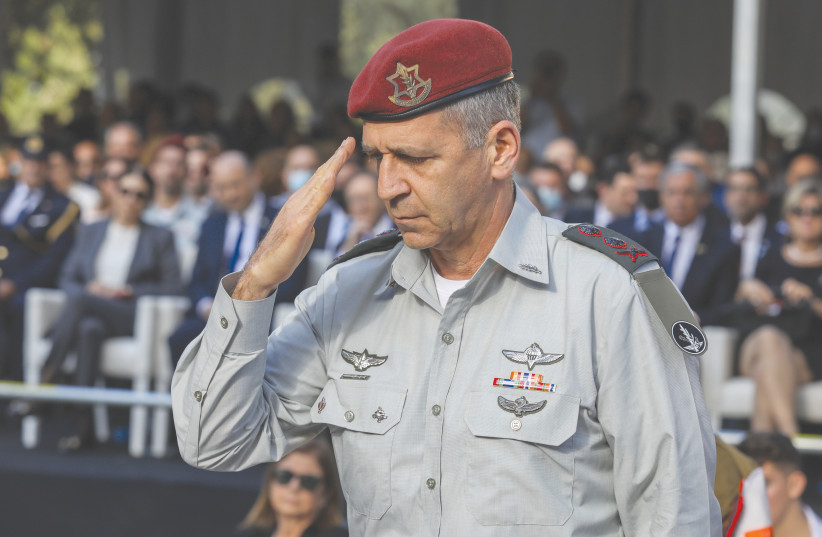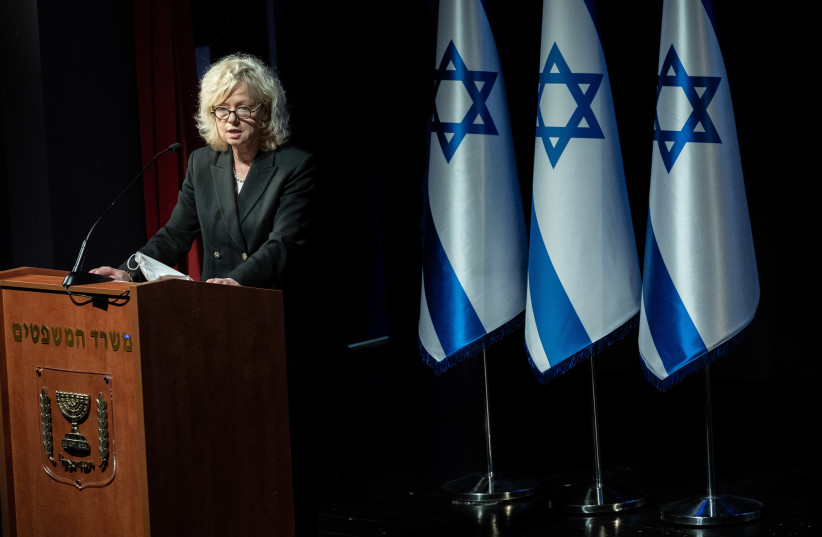Can Defense Minister Benny Gantz appoint a new IDF chief in coordination with the incoming interim government of Acting Prime Minister Yair Lapid?
Attorney-General Gali Baharav-Miara left everyone guessing as to how she will ultimately rule on the issue, but said that appointments during election season were discouraged.
That makes sense because the state wants to avoid the politicization of such crucial appointments as the IDF chief, whether it is real or perceived.
Real politicization could lead to unqualified candidates getting the job, and could severely undermine the nation’s security.
But even a perceived politicization could undercut the legitimacy of a properly qualified candidate, within the IDF itself and with the public.

There could be exceptions, Baharav-Miara suggests
Yet that was not the end of the story as far Baharav-Miara was concerned.
She also said that appointments were not entirely banned and that there could be exceptions if necessary, but said that the legal adviser for the Defense Ministry would need to detail why it was necessary to appoint a new IDF chief of staff at this time.
What will Gantz and the ministry lawyer say?
Indeed, Gantz and the ministry lawyer have some legal ammunition.
Chief of Staff Aviv Kohavi’s term is due to end in January, six months away. An election, however, will likely not take place before late October. Since the formation of a new coalition usually takes two months or more, it is possible that a new government would not be formed before Kohavi’s term expires.
Gantz said that it is critical to avoid having the IDF chief be a temporary appointment, as happened with the police from December 2018 to January 2021. Nearly all observers agree that the police lost its capacity during that time to push through new initiatives, or resist pressure from the political class.
Making sure this does not befall the IDF is certainly a necessity. Gantz has three candidates on the short list of the top generals who could qualify for the No. 1 military post. In fact, there may be time to vote one in before the Knesset disbands.
So why didn’t the attorney-general just give Gantz the green light?
Baharav-Miara said that once the government made it clear that it intends to disband the Knesset, election season necessitated avoiding the perception of politicization.
If a new government is formed before January, then a new IDF chief could be picked without concern of politicization. It is no guarantee, but since it is possible, she may argue that Gantz’s argument of a necessity falls short.
In the case of the police, the transitional government refused to extend the prior police chief’s tenure because of the fight between him and former prime minister Benjamin Netanyahu over the media bribery case.
Here, the transitional government – which is happy with Kohavi – could simply extend his tenure.
And yet, if Baharav-Miara wanted to slam the door shut on Gantz’s idea, she would have. She did not.

So the real question is, why did she leave the door partially open?
Was it to engineer a debate, but one that would end with the defense establishment giving an objective push to Gantz’s campaign?
Or was it to leave her a middle path, where she pauses the appointment process now, but gives advance approval to appoint a new chief if the political system in January is still deadlocked?
The good news is, with the Knesset set to disband next week, we will not need to wait long for the answer.
